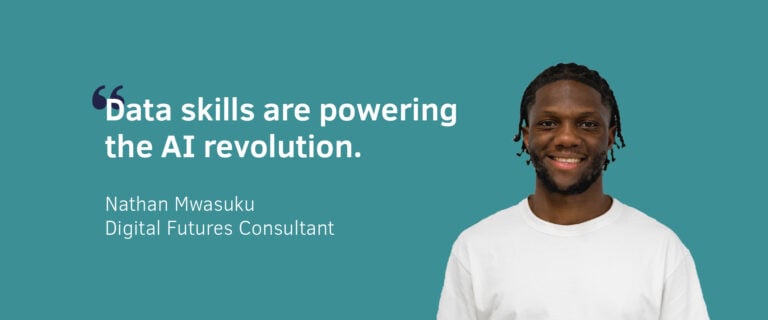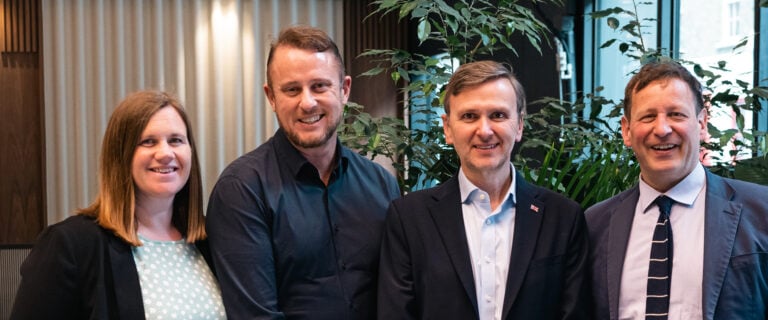We caught up with our Lead Cloud Instructor, Ryan, to get back to basics and tell us all about cloud computing and its extraordinary potential.
Tell us, what actually is cloud engineering?
At a very high level, cloud engineering is the implementation of cloud solutions using hyperscale cloud providers like Amazon Web Service (AWS), Microsoft Azure and Google Cloud Platform. So many of the things we do everyday rely on cloud platforms, like storing photos on your phone, online shopping, banking and streaming.
Cloud engineering is one of the most sought after skills in I.T. right now. A lot of companies looked at the cloud as a potential future project. But after 2020 and the COVID 19 pandemic, and the different ways in which we’ve all had to work, moving to cloud has been thrust to the forefront of the minds of business leaders all over the world.
What does a cloud engineer do?
Most common I.T. systems are made up of different technologies, technologies like servers and storage and networking, which connects it all together and allows people access to use it. Traditionally, these have been very specific roles for the engineers who manage I.T. systems such as server engineers, storage engineers or networking engineers. They all manage their specific part of the solution.
When businesses move to the cloud, they typically adopt a DevOps approach to working. All of those individual technologies are replaced by cloud engineers, a role that covers it all. So a cloud engineer will manage servers, create storage, create networking, manage networking, plus application delivery, security and operations.
Why do you think cloud engineering is a good career?
As more and more businesses around the world move their I.T. systems to cloud, you’ll have a career with huge potential because cloud platforms are constantly changing. Cloud services are at the centre of what we’re doing with technology today, whether that’s developing new medicines and vaccines, in conservation and environment, in commerce and retail or in entertainment. Cloud engineers will be at the heart of delivering those solutions.
What different pathways are available to people working in cloud?
Cloud platforms and the services they provide have grown at a massive rate over the last 15 years. Amazon Web Services now has over 200 services, and they cover everything from those standard application building blocks like server storage, networking and databases to services that have previously been out of reach to most businesses such as big data analytics, machine learning and A.I. There are also services to cover IOT (Internet of Things), media, robotics, and even quantum computing. So once you understand the basics of cloud computing, you can explore technologies that resonate.
How does Digital Futures approach cloud engineering training?
When you arrive with us on day one, we assume that you have no prior knowledge of cloud computing or programming languages. You’ll be on the same journey as everyone else in the class, and you’ll be supported by not only those studying cloud engineering with you, but by students from other pathways across Digital Futures.
We start with a 12 week intensive course where you will gain your first AWS Cloud Practitioner certification in the first four weeks, and then we move on towards gaining the AWS Solution Architect Associate exam within that 12 week timeline. But we don’t stop there.
As you transition to working with one of our clients, you will continue to learn and will take another two associate level exams in your first year before we prepare to sit and pass the AWS Solution Architect Professional level exam at the end of year two. So at the end of the two year journey, you’ve not only got some amazing cloud certifications, but you’ve also got some real world experience of working with high profile companies as a cloud engineer.







